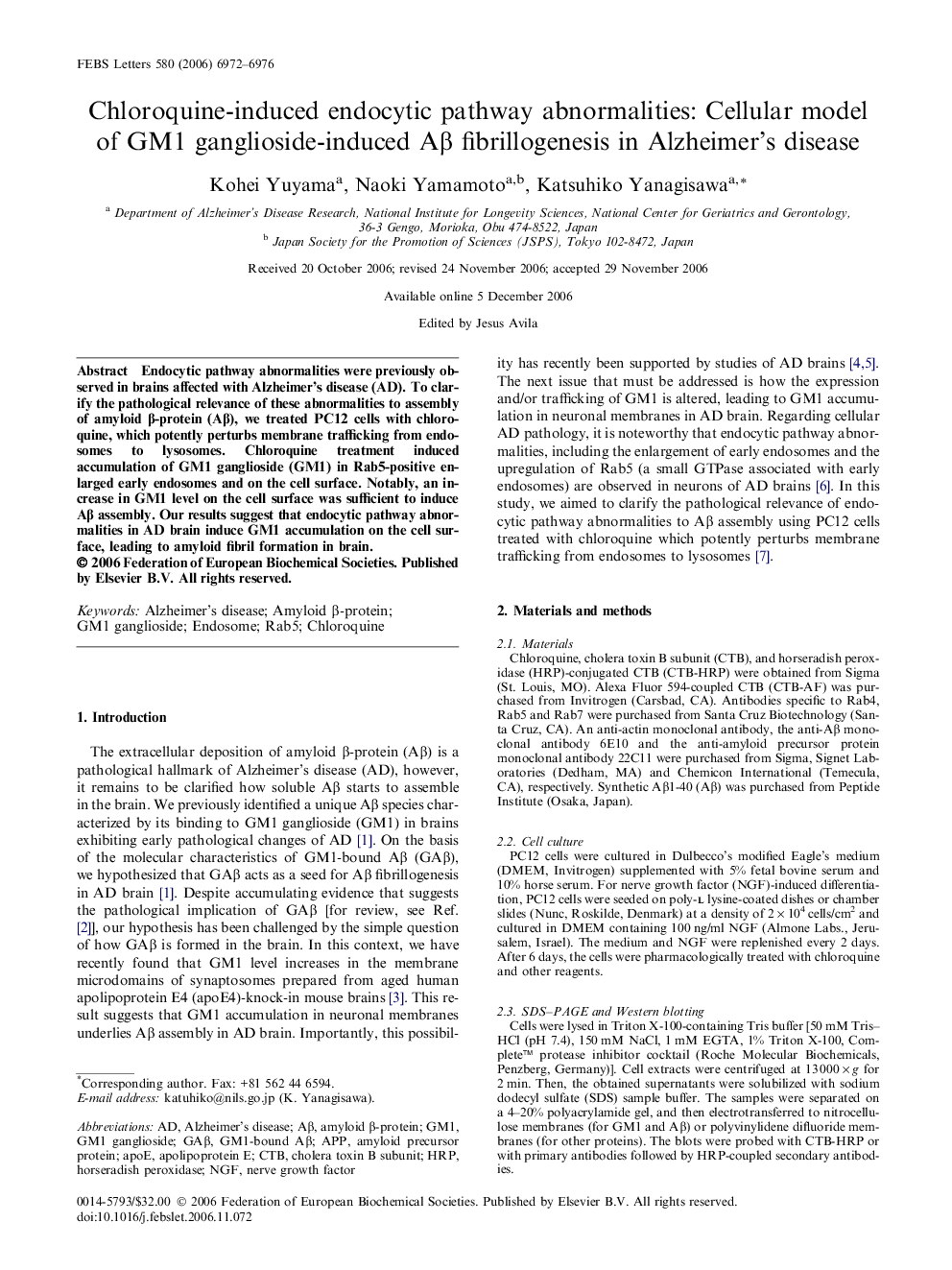| Article ID | Journal | Published Year | Pages | File Type |
|---|---|---|---|---|
| 8384186 | FEBS Letters | 2006 | 5 Pages |
Abstract
Endocytic pathway abnormalities were previously observed in brains affected with Alzheimer's disease (AD). To clarify the pathological relevance of these abnormalities to assembly of amyloid β-protein (Aβ), we treated PC12 cells with chloroquine, which potently perturbs membrane trafficking from endosomes to lysosomes. Chloroquine treatment induced accumulation of GM1 ganglioside (GM1) in Rab5-positive enlarged early endosomes and on the cell surface. Notably, an increase in GM1 level on the cell surface was sufficient to induce Aβ assembly. Our results suggest that endocytic pathway abnormalities in AD brain induce GM1 accumulation on the cell surface, leading to amyloid fibril formation in brain.
Keywords
Related Topics
Life Sciences
Agricultural and Biological Sciences
Plant Science
Authors
Kohei Yuyama, Naoki Yamamoto, Katsuhiko Yanagisawa,
